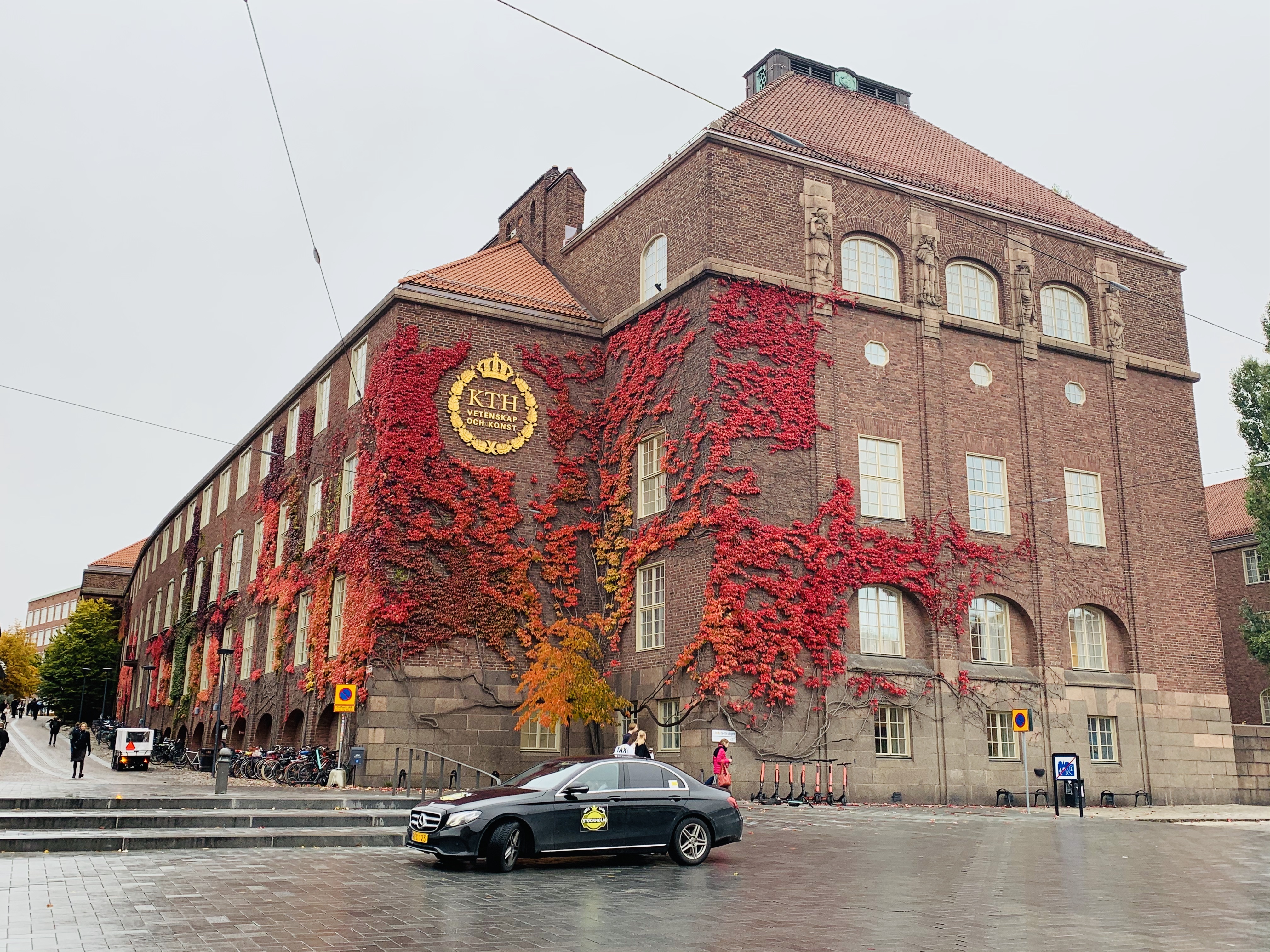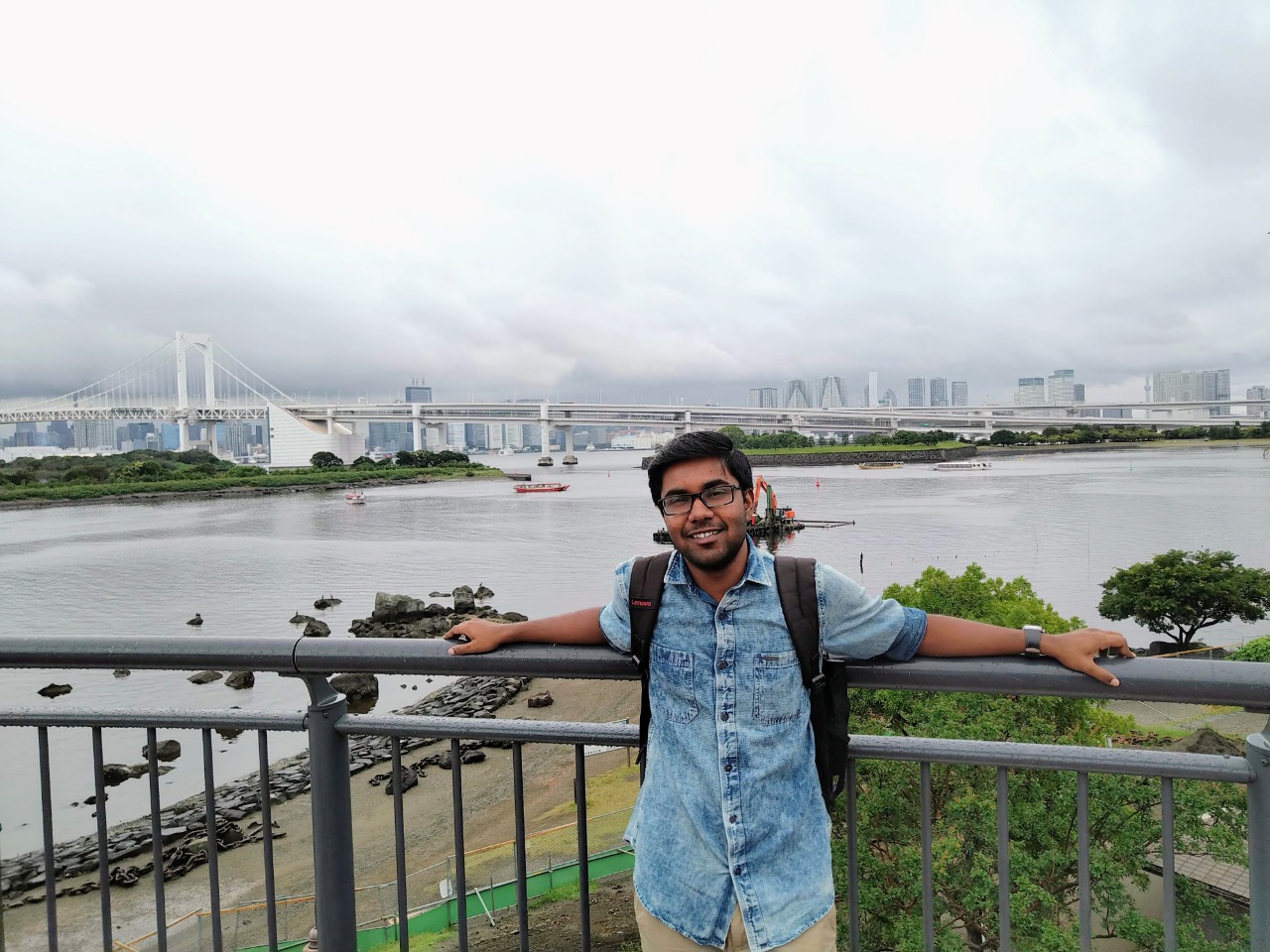

Body of IITR

Let’s start with a brief introduction of mine. I am Ashish Sinha, a senior undergraduate majoring in Metallurgical and Materials Engineering. My research interests focus on making machines that can see, talk and act with the power of machine learning. Now, you may be wondering how did I end up researching ML or the broader question of “How did I end up pursuing research as a career?” So, let’s answer that first.
I had never thought that I would pursue research when I joined IITR. I was one of those students who had the mindset of studying for a decent GPA and getting a good job, that’s it. I was on this path until the end of my 2nd year. My life took a major turn during my second-year internship. I was working at a startup in the data science team. The work culture of a lame 9 to 5 job didn’t appease me much, and I met a couple of people during that time with interests similar to mine, who advised me to move from the field of data analytics and try to read and implement research papers in ML to increase my knowledge. Machine learning is something that anyone can learn by taking a couple of online courses. But these courses are not sufficient if you want to stay updated with the fast progressing field of ML, you would have to read research papers. And researching in this field seemed a viable option for me to stay updated with the trends and to stay aloof from a boring routine job.
I believe that projects and internships are the best modes of exploring an unknown area of interest.
I had tried to do a project related to my major in my second semester but it didn’t fascinate me enough. By the end of my first year, I realized that I was not interested at all in my major and didn’t want to do a project just for the sake of filling up my resume. Hence I didn’t complete any project in my department. So after having some experience with ML, during my second year, I tried to approach the Professors in the CSE department, sometimes they were unwilling to give a project, or sometimes the ideas just seemed not interesting enough to work out as a project. I wanted to explore material informatics, thus I took up a project in my department that involved the application of computer vision in metallurgy since it aligned with interest in ML. But since the professors in my department are also beginning to work with ML, I faced difficulties in taking the project to it’s completion. So, after my second-year internship, I started emailing Professors around the globe for a research internship with the hope that someone would be willing to give me a chance to work, even though I didn’t have any prior research experience. Being a student with a not so high GPA and not being in a circuital branch, made it quite difficult for me to convince a Professor to extend an offer.
After a couple of cold rejections due to lack of funding or vacancy, I finally landed an offer at Max Planck Institute for Iron Research. The project was related to the application of Deep Learning methods in material science, but I wanted to try something related to computer vision/ biomedical research. In 2 years, having already realized that I was not interested in my major and if I ever wanted to go for higher studies, an internship in core ML topic would help a lot rather than a computational aspect of it (this thought was so naive at that time). Finally, I got an offer from Preferred Networks to work on biomedical research. Even though it’s a company and I had made up my mind of not working in a company, this was different. Now, academia and industrial research have their own pros and cons. Academia focuses more on novelty but the resources are scarce while industries focus more on the application, we can try out multiple ideas at the same time as they don’t have a scarcity of resources and the pay is also quite good. Thus I ended up accepting the offer at PFN.
In the meantime, a Prof replied to email regarding taking my interview, but by that time I already had an internship, so I convinced him to supervise me remotely, and he was happy to do so. This is where my actual career in research begins. Working remotely with someone from the other side of the world has a demerit of the time difference but if you are able to communicate properly it’s not much of a problem, plus you get to work from the comfort of your room. I see this as an absolute win. Working for a couple of months resulted in the publication of my first research paper. During my internship I worked on Biomedical imaging for the construction of CT scans from X-Rays using GANs to reduce radiation exposure on patients when they go for various medical examinations and also to create a tool that can help the doctors to carry out preliminary examination before carrying out operations on patients. This work has been accepted to NeurIPS this year, a tier 1 Machine Learning conference. The sweet results of my perseverance motivated me further to go for higher studies.
Many people think that to carry out research, they have to take up a project with some professors. Though it is true for some areas like biotechnology or chemistry which requires access to lab equipment and proper guidance for carrying out research work, projects in an open field like ML can be carried out alone too. I took around 3 projects in my college but ended up completing only one, the major reason for the dropping of those projects was my lack of interest and the attitude of few professors who think that undergrads are not capable for carrying out good successful work. It may be true, but with proper mentorship, undergraduates can also produce good results. This led me to carry out various self-motivated projects by taking up various challenges on Kaggle. Kaggle is a competitive platform like CodeChef but for data science, and has loads of competitions in various domains like vision, language and data analysis. Some take part in competitions for the hefty prize money, some take part to try out their research ideas, and some take part just for the sake of learning. It has the most healthy community that are always willing to help whenever you get stuck on something. The discussion threads are a goldmine if you have the zeal to learn.
Doing research may be daunting and to be frank, it is challenging. Reading a research paper and understanding it completely is an art in itself. You look for a problem to solve, once you alienate the problem, you look for any previous works which have been done for inspiration. After you read some previous works, you begin to develop a mental image of what were the shortcomings of the previous works and how those can be solved. These are YOUR IDEAS. Then you try to implement those ideas, only to realize that some don’t even work, while some improve the results. Then you carry out some more experiments to make sure that your ideas were not just a fluke which worked only once but it generalizes well. That’s it, you’ve done it. You came with some novel ideas to solve a problem in a better way. Now it’s time to pen down your work and share it with the world i.e. write a research paper.
Carrying out research, requires self-motivation and a positive attitude towards your work, so that when your ideas don’t produce any results, you don’t lose hope, but just carry on working towards the goal you set for yourself. Just don’t forget to maintain a decent GPA of around 8, though it is not a requirement for carrying out research, and having a decent GPA would provide you with more opportunities like selection in foreign research internship programs namely DAAD, MITACS or when you want to go for higher studies. Having a good GPA is like icing on the cake(your projects). On a concluding note, remember that research is trying and failing only to learn something new!
Cheers to your future endeavors,
Ashish.